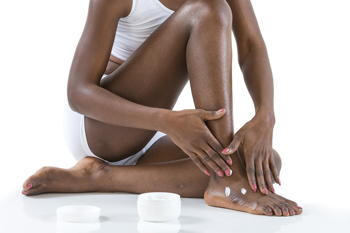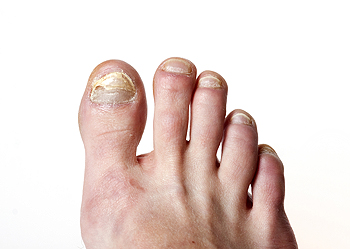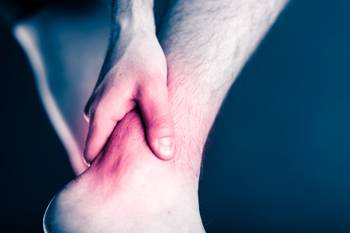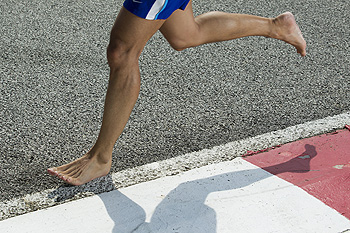 Blisters on the feet can typically develop from friction. This can occur as a result of wearing shoes that do not fit correctly, or from excessive walking and hiking. A blister is defined as a small pocket of fluid that forms to protect the damaged skin. When the skin has repaired itself, the blister will gradually drain. Some patients find it helpful to put powder or cornstarch inside their shoes and socks, which may absorb excess moisture. If a blister on your foot has developed, it is important that you give it immediate attention to protect it, as this can be beneficial in preventing an infection from occurring. This can be accomplished by covering it with a bandage until it has drained naturally. If you get blisters on your feet, It is suggested that you confer with a podiatrist, who can guide you toward prevention strategies.
Blisters on the feet can typically develop from friction. This can occur as a result of wearing shoes that do not fit correctly, or from excessive walking and hiking. A blister is defined as a small pocket of fluid that forms to protect the damaged skin. When the skin has repaired itself, the blister will gradually drain. Some patients find it helpful to put powder or cornstarch inside their shoes and socks, which may absorb excess moisture. If a blister on your foot has developed, it is important that you give it immediate attention to protect it, as this can be beneficial in preventing an infection from occurring. This can be accomplished by covering it with a bandage until it has drained naturally. If you get blisters on your feet, It is suggested that you confer with a podiatrist, who can guide you toward prevention strategies.
Blisters are prone to making everyday activities extremely uncomfortable. If your feet are hurting, contact one of our podiatrists of Foot Health Center of Merrimack Valley. Our doctors can provide the care you need to keep you pain-free and on your feet.
Foot Blisters
Foot blisters develop as a result of constantly wearing tight or ill-fitting footwear. This happens due to the constant rubbing from the shoe, which can often lead to pain.
What Are Foot Blisters?
A foot blister is a small fluid-filled pocket that forms on the upper-most layer of the skin. Blisters are filled with clear fluid and can lead to blood drainage or pus if the area becomes infected.
How Do Blisters Form?
Blisters on the feet are often the result of constant friction of skin and material, usually by shoe rubbing. Walking in sandals, boots, or shoes that don’t fit properly for long periods of time can result in a blister. Having consistent foot moisture and humidity can easily lead to blister formation.
Prevention & Treatment
It is important to properly care for the affected area in order to prevent infection and ease the pain. Do not lance the blister and use a Band-Aid to provide pain relief. Also, be sure to keep your feet dry and wear proper fitting shoes. If you see blood or pus in a blister, seek assistance from a podiatrist.
If you have any questions, please feel free to contact one of our offices located in North Andover, and Tewksbury, MA . We offer the newest diagnostic and treatment technologies for all your foot care needs.








 Plantar hyperhidrosis
Plantar hyperhidrosis




